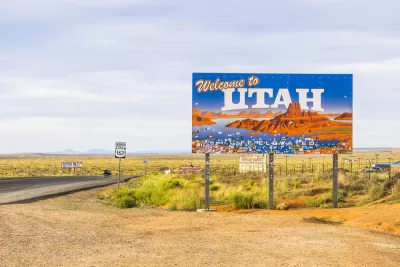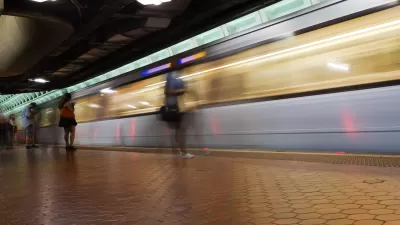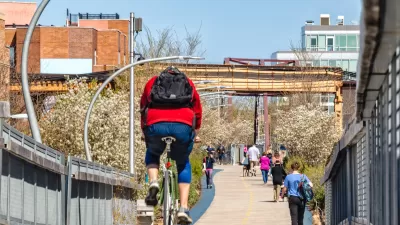A community that focuses on reducing the need for car ownership and providing effective multimodal transportation and diverse land uses will be built from scratch on the site of the decommissioned Utah State Prison.

A brand new neighborhood and "innovation hub" in Draper, Utah will be built with the explicit goal of reducing the need for cars and providing comprehensive, connected bike, pedestrian, and transit infrastructure, reports Kea Wilson. The project, which will be built on state-owned land, is overseen by the Point of the Mountain State Land Authority.
The project, known as the Point, will house roughly 7,400 homes plus schools and businesses. According to the article, "the Utah site may be the first publicly-sponsored project to pursue a car-light model, as well as the first U.S. community explicitly planned around the concept of the '15-minute city' from the ground up." The development will include a central "pedestrian priority zone," mixed-use zoning, public transit, and micromobility options such as bike and scooter share.
While cars won't be entirely banned from the Point, its developers hope that each household will be able to meet its needs with only occasional trips using just one vehicle and plans to connect all parts of the community with diverse mobility options.
State leaders hope the community can serve as a model for sustainable, car-light development that minimizes private vehicle use and improves air quality and livability for its residents.
FULL STORY: Utah Is Building a ’15-Minute City’ From Scratch

Alabama: Trump Terminates Settlements for Black Communities Harmed By Raw Sewage
Trump deemed the landmark civil rights agreement “illegal DEI and environmental justice policy.”

Planetizen Federal Action Tracker
A weekly monitor of how Trump’s orders and actions are impacting planners and planning in America.

The 120 Year Old Tiny Home Villages That Sheltered San Francisco’s Earthquake Refugees
More than a century ago, San Francisco mobilized to house thousands of residents displaced by the 1906 earthquake. Could their strategy offer a model for the present?

In Both Crashes and Crime, Public Transportation is Far Safer than Driving
Contrary to popular assumptions, public transportation has far lower crash and crime rates than automobile travel. For safer communities, improve and encourage transit travel.

Report: Zoning Reforms Should Complement Nashville’s Ambitious Transit Plan
Without reform, restrictive zoning codes will limit the impact of the city’s planned transit expansion and could exclude some of the residents who depend on transit the most.

Judge Orders Release of Frozen IRA, IIJA Funding
The decision is a victory for environmental groups who charged that freezing funds for critical infrastructure and disaster response programs caused “real and irreparable harm” to communities.
Urban Design for Planners 1: Software Tools
This six-course series explores essential urban design concepts using open source software and equips planners with the tools they need to participate fully in the urban design process.
Planning for Universal Design
Learn the tools for implementing Universal Design in planning regulations.
Clanton & Associates, Inc.
Jessamine County Fiscal Court
Institute for Housing and Urban Development Studies (IHS)
City of Grandview
Harvard GSD Executive Education
Toledo-Lucas County Plan Commissions
Salt Lake City
NYU Wagner Graduate School of Public Service





























